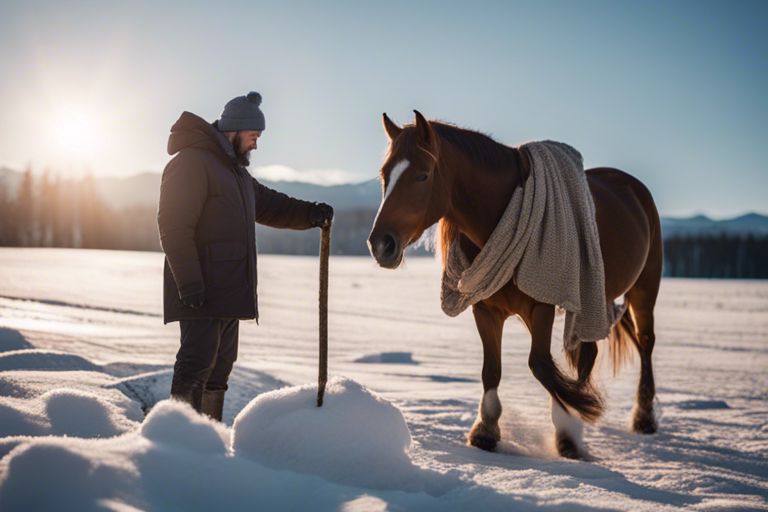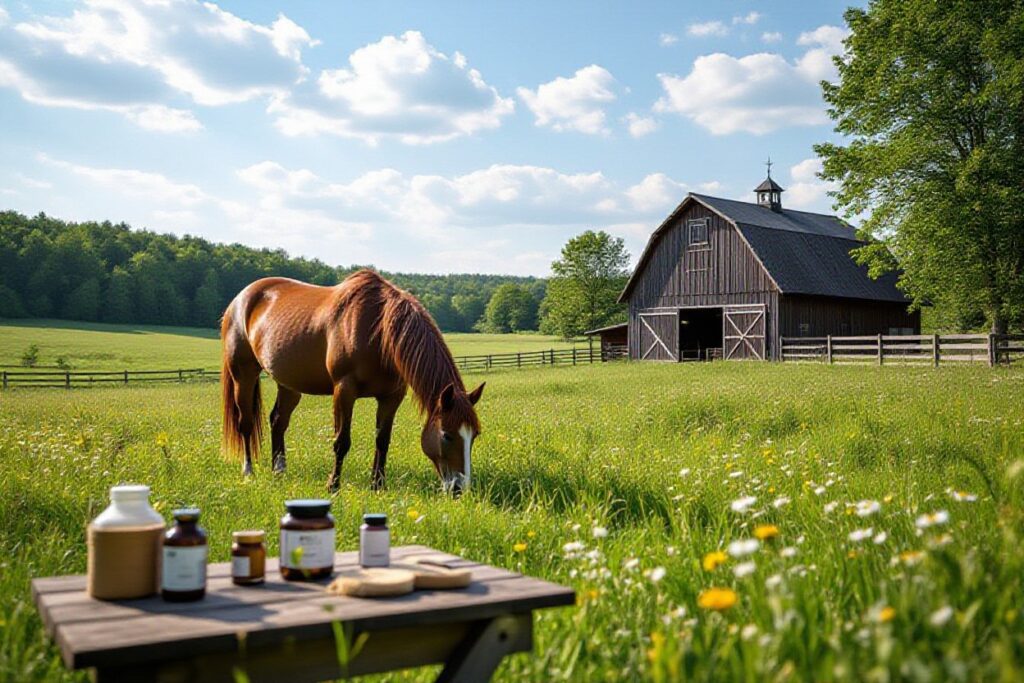With the chilling winds and icy storms of winter approaching, it’s crucial to equip your horses for the harsh weather conditions ahead. In this guide inspired by the rugged spirit of Jack London, you will discover necessary tips and techniques to protect your equine companions from the elements and ensure their health and well-being during the most challenging seasons. Embrace the adventure of preparing your horses for the unforgiving weather with confidence and know-how.
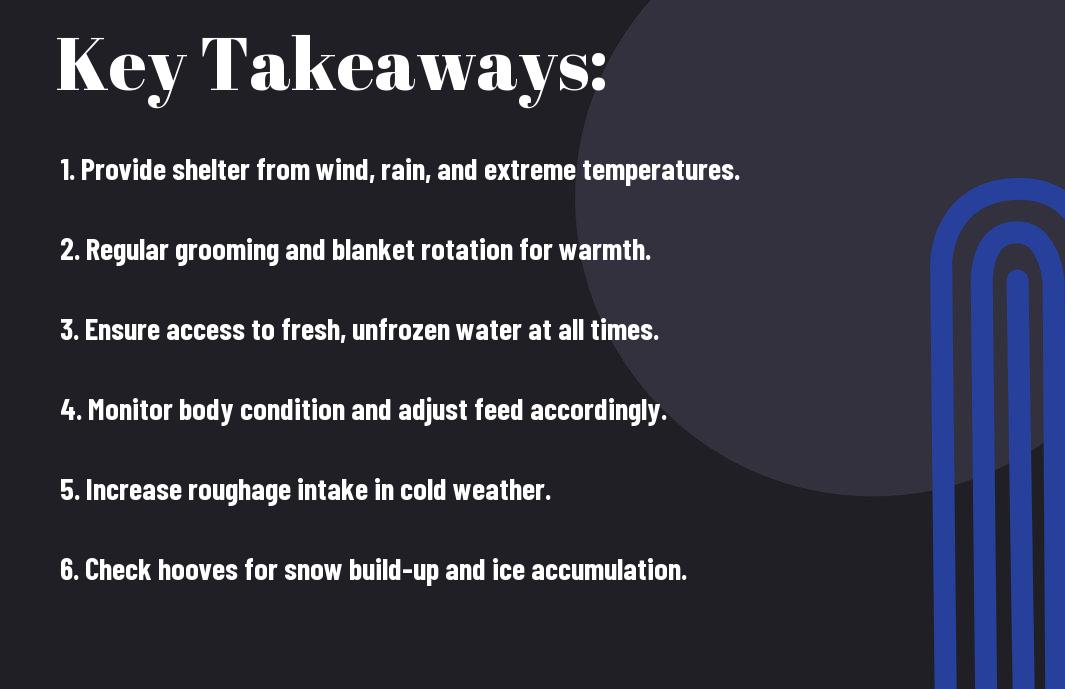
Assessing Weather Conditions
While preparing your horses for harsh weather conditions, it is crucial to assess the weather forecast and current conditions. By understanding the weather patterns, you can adequately prepare your equine companions for whatever nature may throw their way.
Identifying Harsh Weather Types (Extreme Cold, Heat, Rain, Snow)
- Extreme Cold: Ensure your horses have access to shelter, warm blankets, and ample food and water to stay warm and healthy during freezing temperatures.
- Heat: Provide shade, plenty of water, and consider adjusting riding or work schedules to cooler times of the day to prevent heat exhaustion in your horses.
- Rain: Keep your horses dry by providing waterproof blankets or shelters, and monitor for signs of illness that can arise from prolonged exposure to wet conditions.
- Snow: Clear pathways for your horses to walk and graze safely, and check their hooves for ice build-up to prevent slipping and injuries.
Any sudden changes in weather conditions can be particularly challenging for horses, so staying alert and responsive is key to their well-being.
| Conditions | Considerations |
| Extreme Cold | Provide warm shelter and extra bedding |
| Heat | Ensure access to shade and cool water |
| Rain | Keep horses dry and monitor for signs of sickness |
| Snow | Clear pathways and check hooves for ice |
| Sudden Changes | Be alert and adapt quickly to changing conditions |
Monitoring Weather Forecasts and Alerts
Harsh weather conditions can pose serious risks to your horses, so it is crucial to stay informed through weather forecasts and alerts. By keeping an eye on upcoming weather patterns, you can make informed decisions to protect your horses from potential harm.
Alerts: Pay attention to severe weather alerts such as extreme cold warnings, heat advisories, flood alerts, or blizzard warnings, and take necessary precautions to ensure the safety of your horses.
Preparing the Horse’s Living Space
You need to ensure that your horse’s living space is well-prepared to protect them from harsh weather conditions. This includes insulating and ventilating stables and shelters, as well as providing adequate bedding and dry areas.
Insulating and Ventilating Stables and Shelters
To protect your horse from extreme weather conditions, it is crucial to insulate their living space. Insulation helps to regulate the temperature inside the stable, keeping it warm in the winter and cool in the summer. Additionally, proper ventilation is crucial to ensure a constant flow of fresh air, preventing the buildup of harmful fumes and moisture.
Providing Adequate Bedding and Dry Areas
Areas where your horse rests and sleeps should be equipped with adequate bedding to keep them warm and comfortable. It is crucial to provide dry areas where your horse can seek refuge from rain, snow, or mud. A dry environment helps prevent skin issues and respiratory problems caused by dampness.
Ventilating stables and shelters properly is crucial to prevent respiratory issues that can arise from poor air quality. Make sure there is enough ventilation to keep the air fresh and prevent the buildup of harmful gases like ammonia. Adequate airflow also helps regulate the temperature inside the stable, ensuring your horse’s comfort in all weather conditions.
Nutrition and Hydration
After ensuring your horse has a comfortable shelter to protect them from harsh weather conditions, it’s important to focus on their nutrition and hydration to keep them healthy and strong. Harsh weather can increase the energy needs of your horse, requiring adjustments to their feed rations and ensuring they have access to fresh water and electrolytes.
Adjusting Feed Rations for Energy Needs
The colder weather can cause your horse to burn more calories to stay warm. Adjusting their feed rations by increasing their hay intake can help provide them with the extra energy they need to maintain their body temperature. You may also consider adding supplemental grains or fats to their diet to boost their calorie intake during inclement weather.
Ensuring Access to Fresh Water and Electrolytes
Hydration is crucial for your horse’s health, especially during extreme weather conditions. Ensuring they have access to fresh, unfrozen water at all times is important. Additionally, providing electrolytes can help replace the minerals lost through sweating, especially if your horse is working or exercising in the cold.
Plus, adequate hydration can help prevent issues like impaction colic, which can be more common when horses don’t drink enough water in cold temperatures. Make sure your horse’s water source is kept free from ice and regularly checked to ensure they are drinking enough to stay hydrated.
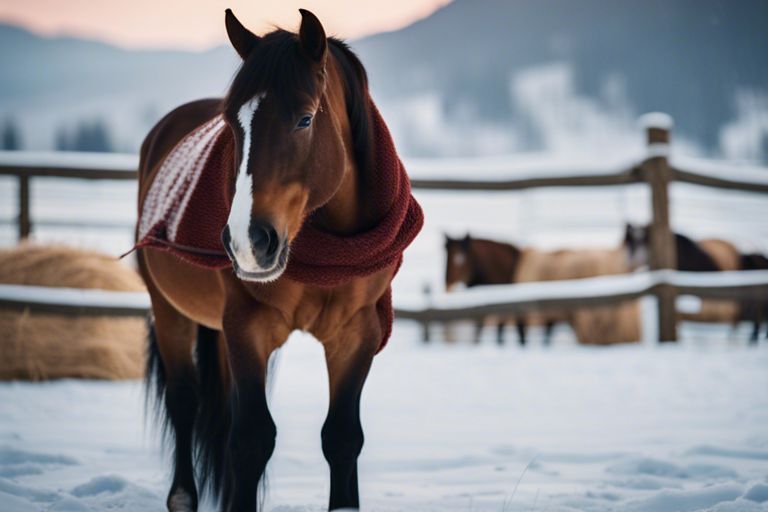
Grooming and Coat Care
Once again, proper grooming and coat care are important when preparing your horse for harsh weather conditions. These practices not only keep your horse looking neat and tidy but also help maintain their overall health and well-being.
Brushing and Trimming to Prevent Matting and Tangling
Brushing your horse regularly is crucial to prevent matting and tangling of the coat. Use a suitable brush for your horse’s hair type, starting from the top and working your way down to prevent pulling on the skin. Pay special attention to areas where dirt and debris can accumulate, such as under the mane, tail, and fetlocks. Trimming any long hair around these areas can also help prevent tangles and make grooming easier.
Applying Protective Ointments and Conditioners
Brushing your horse’s coat not only helps in maintaining its appearance but also allows you to check for any skin issues or irritations that may need attention. Another important aspect of coat care is applying protective ointments and conditioners to keep the hair healthy and resilient against harsh weather elements. Look for products specifically designed for horses that provide a barrier against moisture and help keep the coat in optimal condition.
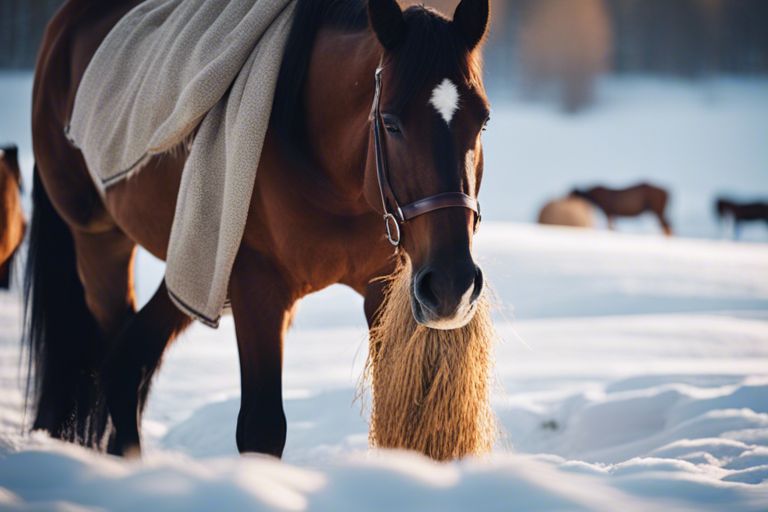
Health and Wellness
Your horse’s health and wellness are paramount, especially when preparing them for harsh weather conditions. Ensuring your horse is in optimal condition will help them withstand challenging weather and environmental factors.
Monitoring for Signs of Illness or Injury
On your daily checks, pay close attention to your horse’s behavior, appetite, and bodily functions. Any changes in these can be early indicators of illness or injury. Watch for signs such as lethargy, lameness, abnormal discharges, or changes in eating habits. Immediate action should be taken if you notice anything out of the ordinary to prevent potential issues from escalating.
Scheduling Veterinary Check-Ups and Vaccinations
Veterinary check-ups and vaccinations are crucial in maintaining your horse’s health. Regular visits with a qualified equine veterinarian can help prevent illnesses and address any concerns promptly. Vaccinations are crucial to protect your horse from common diseases, especially when exposing them to harsh weather conditions.
The veterinarian can provide tailored advice on the vaccination schedule suitable for your horse’s specific needs and the prevalent diseases in your area. Make sure to follow their recommendations diligently to keep your horse in the best possible health.
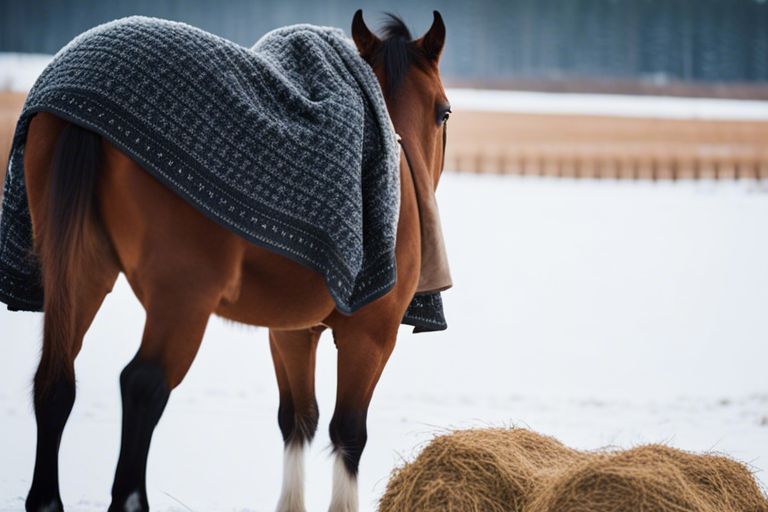
Exercise and Activity
Despite harsh weather conditions, maintaining your horse’s exercise routine is crucial for their overall health and well-being.
Adjusting Exercise Routines for Weather Conditions
An necessary aspect of preparing your horse for harsh weather conditions is adjusting their exercise routine accordingly. When facing extreme heat, it’s important to schedule exercise sessions during the cooler parts of the day, such as early morning or late evening. On the other hand, in cold weather, you may need to shorten the duration of the workouts and ensure proper warm-up and cool-down to prevent muscle strain or injury. **Always monitor your horse’s response to exercise in different weather conditions and adjust their routine as needed to keep them comfortable and healthy.**
Providing Mental Stimulation and Socialization
Any changes in weather conditions can affect your horse’s mental well-being. In times of extreme weather, it’s crucial to provide **adequate mental stimulation and socialization** to prevent boredom and anxiety. **Introduce new toys or puzzles for mental enrichment, and allow your horse ample time to interact with pasture mates or engage in group activities**. **This not only keeps your horse mentally sharp but also helps reduce stress and anxiety levels, promoting a healthier overall mindset.**
To wrap up
Taking this into account, it is vital to always be prepared for any weather conditions when caring for your horses. By following the guidelines outlined above, you can ensure that your horses are well-equipped to handle harsh weather and stay healthy and comfortable. Remember to provide adequate shelter, proper nutrition, and regular grooming to help your horses thrive no matter what nature throws their way.
Q: How should I prepare my horse for cold weather?
A: When preparing your horse for cold weather, make sure they have access to shelter, blankets if needed, plenty of forage to maintain body heat, and unfrozen water.
Q: How can I help my horse stay hydrated in extreme heat?
A: To help your horse stay hydrated in extreme heat, provide access to clean, fresh water at all times, consider adding electrolytes to their feed, and provide shade to escape the sun’s intense rays.
Q: What steps can I take to protect my horse’s hooves in wet conditions?
A: To protect your horse’s hooves in wet conditions, ensure their hooves are properly trimmed and balanced, apply a hoof sealant to prevent excess moisture absorption, and provide a dry area for them to stand when possible.
Q: How can I prevent my horse from getting sunburned in hot weather?
A: To prevent your horse from getting sunburned in hot weather, apply a horse-safe sunscreen to sensitive areas of their skin, provide shade during peak sun hours, and consider using a fly sheet for added protection.
Q: What precautions should I take when riding my horse in snowy or icy conditions?
A: When riding your horse in snowy or icy conditions, ensure your horse has proper traction on their hooves, dress them in appropriate winter riding gear, and be mindful of potential hazards like hidden ice patches or deep snow drifts.
